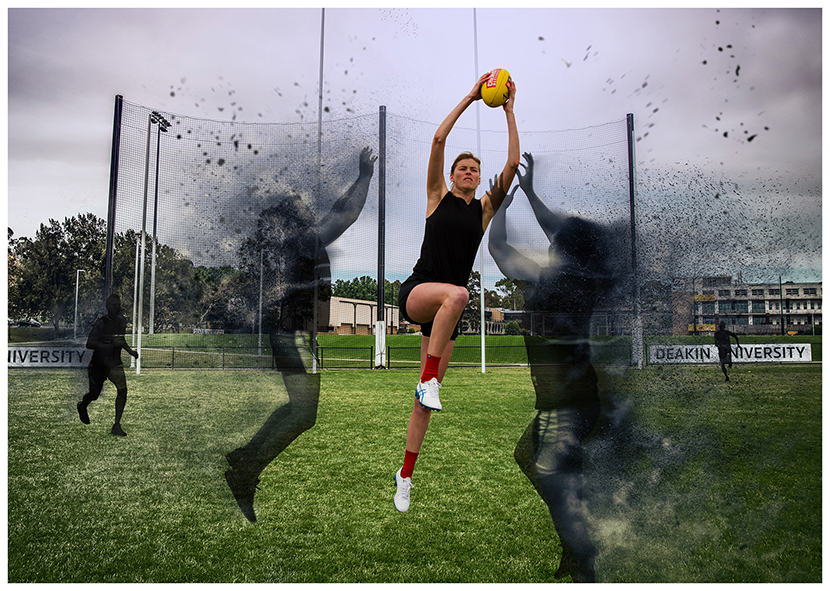A Deakin Fulbright researcher is set to investigate how the ways we move and the things we eat influence our mental health.
We might suspect they have an effect, but how much do poor diet and inactivity affect our mental health? Dr Erin Hoare, an Australian Rotary Health Fellow from Deakin’s Food and Mood Centre, is preparing to explore the connection in a major new project that will use big data to track the habits of whole populations since 1950.
Dr Hoare has received a prestigious Postdoctoral Fulbright Futures Scholarship to undertake the research at Boston University next year. The scholarship was awarded by the Australian-American Fulbright Commission, which supports research that aims to improve the health, wellbeing and prosperity of Australians.
“This research is both novel and pioneering, so it will be exciting to conduct it in an international setting,” said Dr Hoare.
“Boston University will be a great environment to network in, learn from other disciplines and get an insight into internationally-recognised public health expertise.”
The project, “Food, Move, Mood: Mapping the protective potential of diet and physical activity for mental health across the lifespan,” will explore how mental disorders can be reduced through nutrition.
Dr Hoare will analyse health behaviours across generations in a bid to identify new approaches that are effective in preventing and treating mental disorders.
“I’ll be examining decades-old comprehensive population data,” Dr Hoare said.
“It is a unique project as the time-frame is so long, but this means the predictive potential of identifying how specific behaviours affect mental health can be extrapolated.”
Dr Hoare hopes her research will extend the conversation about the interconnections between physical health and mental health experiences. According to the Australian Bureau of Statistics, one in two Australians will experience a mental health condition at some point in their lifetime.
[testimonial_text]It’s very important that mental health receives the research funding that it deserves, given the burden attributable to mental health disorders.[/testimonial_text]
[testimonial_picture name=”Dr Erin Hoare” details=”Deakin Food and Mood Centre, Australian Rotary Health Fellow”]
 [/testimonial_picture]
[/testimonial_picture]“We’re all affected by mental health issues – if it’s not ourselves, it’s likely to be other people in our lives. Young people, in particular, are at great risk, so we need to do everything we can to give them the best possibility of experiencing positive mental health.”
Dr Hoare completed her Bachelor of Psychology at Deakin in 2012. She has been involved with the University, in some capacity, ever since – as a PhD student, tutor and research fellow.
During her PhD, she was awarded an Australian Government Endeavour Fellowship at Oxford in the UK, where she was introduced to population-level database analysis, and will spend part of 2019 at Cambridge University on an NHMRC Early Career Fellowship before she heads to Boston.
“I think through the exploration of large data sets I’ll be able to get a real insight into how behaviours can be used as targets for preventing or managing mental health disorders,” she said.
“Mental health is not going to be cured by lifestyle behaviours, but it’s important we find the things we can target to make a difference – and I think there is great potential in diet and physical activity.”
Away from her scientific career, Dr Hoare plays in the AFLW. She is effusive about the benefits of physical activity in her own life.
“I’ve played sport my whole life and, as a result, I’ve gained wonderful, protective things from that – strong social networks, team work, leadership, resilience, goal setting and so on,” she said.
“My passion for mental health research has been influenced by my involvement with sport. I’ve become quite vocal in the public domain about reducing mental health stigma and generating discussions.
“The great thing about being a researcher is that you’re encouraged and rewarded for being curious – challenging ideas, your peers and senior professionals,” she said.



